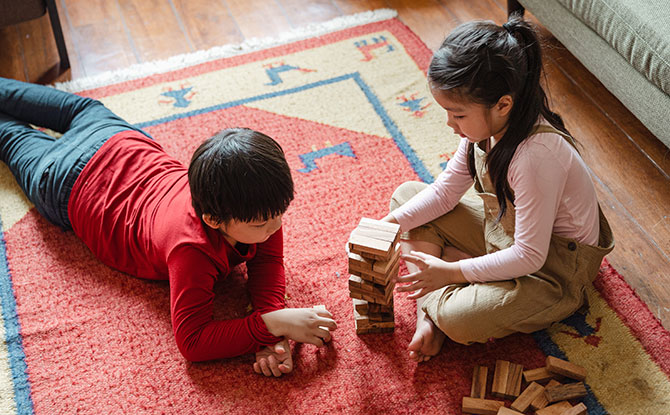
“Why are you two squabbling again?” “She snatched my toy.” “He pinched me!”
One of the challenges as parents with multiples is often the number of arguments amongst siblings. Sometimes I encounter a disagreement every 15 minutes. It can frustrate parents especially when you are in a Zoom meeting and buried in work at home. But the point is not about siblings’ squabbles triggering parents, we all wish to have harmonious relationships in the family. How can we encourage our children to get along with their siblings?
We have some tips from parents of multiples to share.
How to Encourage Siblings to Get Along
See the Squabbles as Teaching Opportunities
Arguments, disagreements, fights might look ugly. But these are important moments to help us to get along with others, see differences of opinion and come to a consensus or apologise for our mistakes. Simply put, siblings not getting along are being taught life lessons (daily). We probably remember how we got into petty quarrels with our own siblings which were necessary for our growth and relationship-building. Many of us would not have known as much about social interaction skills if not for our siblings.
DINO-TASTIC EXHIBITION: Meet a 40m Long Dino Face-to-Face
GIVEAWAY FOR ENEWSLETTER SUBSCRIBERS: LEGO NINJAGO SET
REGISTER EARLY AND SAVE UP TO $400: English Classes for N1 to Secondary
In the same vein, see the arguments as teaching opportunities. Mediate when necessary, ask if needs are met and how actions make others feel, and ask the children for the solutions.
For example, parents can ask these questions: What do you think he or she needs? How do you think he or she feels when you did that? How can we play together more happily?
These are opportune moments siblings need in order to learn getting along. We learn taking turns and sharing best when there are others to practise with.
Set Ground Rules
If you haven’t got ground rules set, you could get some help with setting the rules on a large piece of paper or board where everyone can see it. General rules about vulgar language, violent behaviour, name-calling should not be condoned. Ask the family to chip in when setting the rules, so there is more buy-in rather than a mere top-down approach.
Let Them Sort it Out
This one might sound counter intuitive. If no one is in a life-threatening scenario (when someone’s life is endangered), you could let the siblings sort it out on their own. Instead of parents and other caregivers stepping in all the time, they need to put to practise their conflict resolution skills.

Some parents might think it is best to keep them separate, whether it’s bedrooms or play spaces. But parents will tell you that sharing a room for siblings can help them to form closer bonds because of the necessity to share the space and resources. This way they learn also not to think about their own needs but consider the needs of others as well.
Fair treatment for All Siblings and Avoid Taking Sides
You would know that favouritism never ends up well. Avoid taking sides especially in your children’s arguments. If you have to step in, listen hard and be fair to all. This includes meting out consequences appropriately, even on the child you secretly adore most.
Celebrate their Strengths rather than Make Comparisons
The tendency to compare siblings is irresistible, especially when one is behaving and the other is not. Instead of comparing, we can focus on each child’s strengths and point out the positive dispositions of others.
For instance, instead of “Stop doing that! Look at your sister who is sitting down quietly and reading, can’t you be more like that?”
Try “I’m sure you can wait like a patient little girl. Wow, your sister is reading quietly, how about picking a book to read?”
Or “Let’s wait together, we can all enjoy a good book just like your sister.”
Acknowledge their individual strengths even as they complete the same activity, rather than comparing. You can say “I like the colours you chose for your picture.” And “Your brother spent a long time focusing on the colouring.”
Role Model Positive Behaviour
Lest we be hypocrites, we should practise what we preach. This means acknowledging one another’s needs, apologising sincerely when we fall short and making up after an argument. Children can often mimick adults very well. If family harmony is a priority, everyone in the family ought to be responsible for maintaining amicable relationships.

It could be a long journey before the siblings learn that blood is thicker than water. We often hear young adults expressing their appreciation for their siblings despite the amount of conflict and differences. Aside from genetics, siblings go through much of their lives together – they share the same parents, memories, adventures, at times punishments, their wardrobe, books and more. Siblings are often more than just friends for life but fellow human beings that share so much that the bond is unbreakable.






















